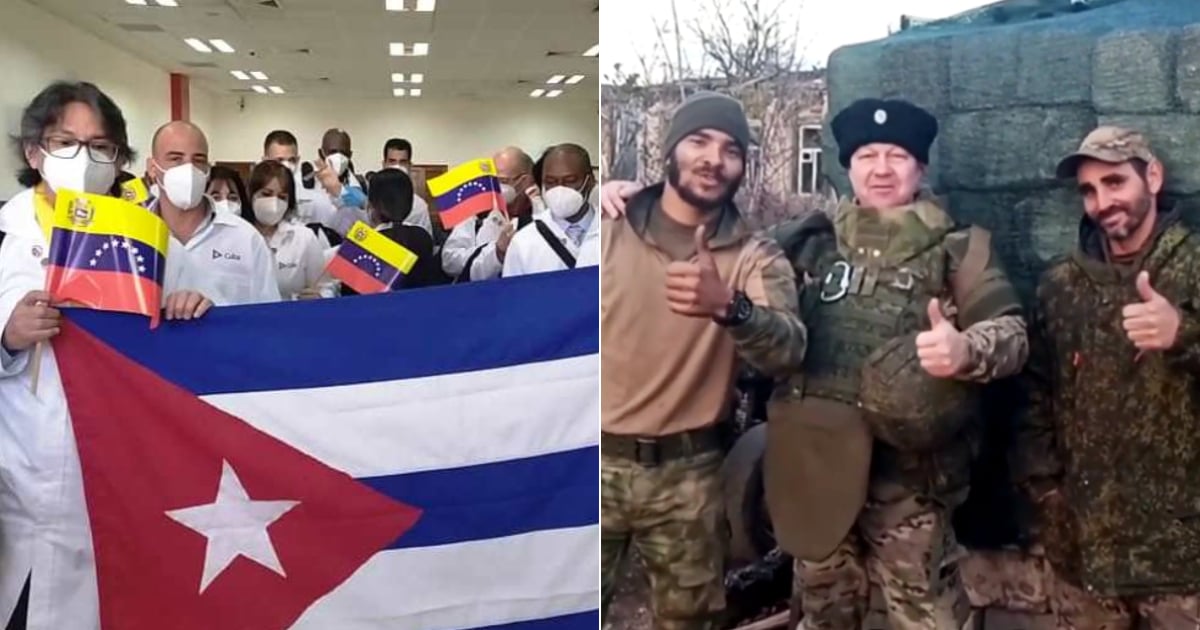
A recent report from the US Department of State confirmed that Cuba will remain at the highest alert level (Level 3) due to its failure to meet the minimum standards for the elimination of human trafficking.
This level indicates that the Cuban government is not only not making significant efforts to address this issue, but also continues in governmental practices that facilitate and benefit from forced labor.
Despite the fact that the Cuban government approved the National Action Plan (NAP) 2023-2026 to combat trafficking, the measures are insufficient in the face of accusations that it benefits from forced labor, particularly through the labor export program, including the controversial medical missions abroad.
Labor exploitation practices
The report reveals that the Cuban government continues to deploy workers abroad under coercive and deceptive conditions.
Often, these workers, many of them healthcare professionals, have their passports and professional credentials confiscated, are subjected to strict curfews and surveillance, and receive salaries far below what was promised.
The government withholds a significant portion of their salaries and does not adequately inform them about the terms of their contracts, which vary from one country to another.
In addition, authorities threaten and punish workers and their families if they try to leave the program. These practices have been widely documented by victims, NGOs, international organizations, and foreign governments, who accuse Cuban officials of facilitating serious abuses against human rights and forced labor.
One of the most worrying aspects is that the Cuban government continues to send its citizens to work under exploitative conditions in countries in Africa, Asia, Latin America, and the Caribbean, among others.
In many of these destinations, Cuban workers are used in programs that border on modern slavery. These programs are presented as solidarity missions, but in reality, they are mechanisms of labor exploitation that generate significant income for the Cuban government, highlighted the Report.
Deficit in the prosecution of crimes
The Cuban government has shown a significant decrease in efforts to process and prosecute human trafficking crimes. According to the most recent official data, only six victims of sexual trafficking were identified in 2022, the lowest number in a decade. Additionally, there were no reports of any investigations, prosecutions, or convictions for labor trafficking.
Article 363.1 of the Cuban Penal Code penalizes labor trafficking and some forms of sexual trafficking, with sentences ranging from seven to 15 years in prison. However, the law does not include clear provisions for cases of child sexual trafficking, which hinders the effective protection of these minors.
Despite the seriousness of these accusations, the Cuban authorities have not made sufficient efforts to investigate or prosecute those responsible for these crimes.
In many cases, government officials themselves are involved in trafficking networks, creating an environment of impunity and further complicating the fight against these practices. According to the State Department Report, the complicity of authorities not only facilitates labor and sexual exploitation, but also discourages victims from reporting abuses due to fear of reprisals.
International context
The Cuban government also faces accusations of complicity in the fraudulent recruitment of Cubans to fight in the large-scale Russian invasion of Ukraine.
In this sense, it is reported that Cuban officials would have facilitated the travel of recruits by speeding up the issuance of passports and omitting exit stamps, which is interpreted as an attempt to deny their knowledge of these movements.
According to reports, some Cuban citizens have been deceived with promises of employment in Russia, only to find themselves forced to participate in the armed conflict upon reaching their destination.
Cuban authorities have been accused of being complicit in this type of recruitment, facilitating travel documents and ensuring that these movements are not officially detected.
This situation has generated significant concern at the international level and has further highlighted the deficiencies of the Cuban government in protecting its citizens.
In this environment, international organizations and foreign governments have intensified their monitoring and pressure on the Cuban government, urging for an urgent and effective reform in its human trafficking policies.
The international community continues to demand concrete and transparent actions to end these practices and protect the human rights of Cuban citizens.
Impact on the victims
Victims of trafficking in Cuba face a double challenge: on one hand, exploitation and direct abuse resulting from coercive labor conditions; on the other hand, lack of protection and support from the government.
The few victims who manage to be identified do not receive adequate attention and, in many cases, are re-victimized by a system that ignores them or penalizes them for trying to escape exploitation.
In 2022, only six victims of sexual trafficking were identified in Cuba, a alarmingly low number considering the magnitude of the issue. The lack of formal procedures for the identification and protection of victims, together with reliance on self-identification, reflects a lack of genuine commitment from the Cuban government to address this humanitarian crisis.
NGOs and human rights organizations continue to denounce the lack of political will and resources dedicated to the fight against human trafficking on the island.
In its conclusions, the report recommended the Cuban government to implement structural reforms to protect its citizens and comply with international standards in the fight against human trafficking.
Likewise, she called on the international community to continue exerting pressure and offering support to ensure that these changes are carried out and that the victims receive the justice and protection they deserve.
What do you think?
COMMENTFiled under: